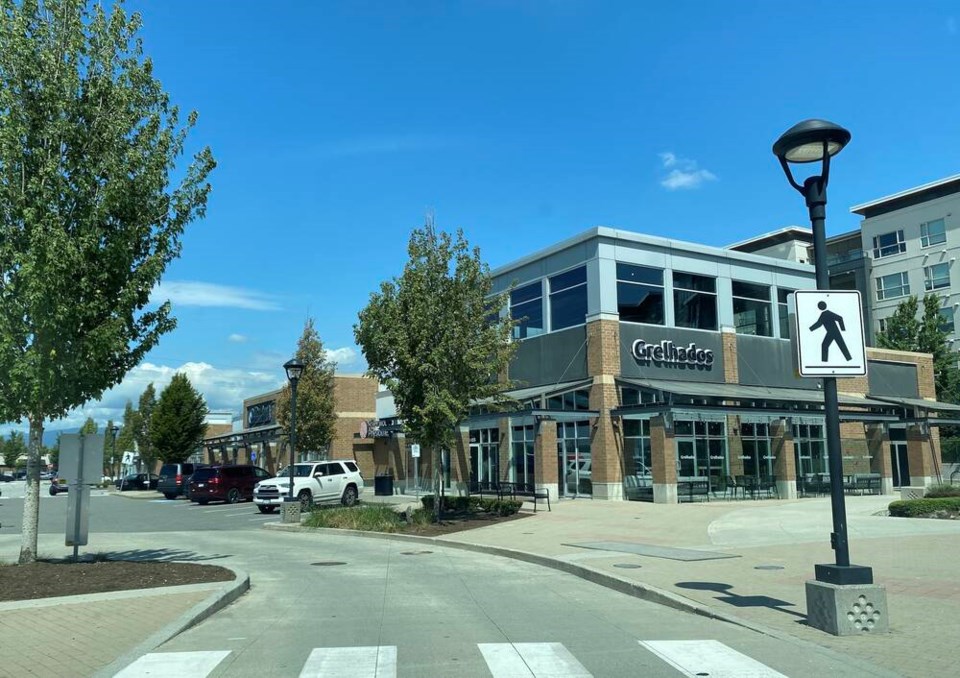Port Coquitlam is updating and streamlining fees it requires developers to pay for new infrastructure to accommodate a 30 per cent boost to population over the next 20 years.
Developers will soon pay more to build single-family houses, townhouses and multi-family homes in most areas of the city.
Except one.
In the Dominion Triangle, PoCo's busiest shopping district, development has been paying for the cost of new drainage, water, sewer and transportation infrastructure through higher development cost charges for years.
Now it's time for the rest of the city to catch up.
On Tuesday (July 11), Port Coquitlam gave the first three readings to a new Development Cost Charges (DCC) bylaw that will eventually replace a two-tiered fee system with a single-area charge.
Higher development cost charges
It means developers in most areas of PoCo will be facing higher DCCs, unless their project is already in the system.
For example, in most of PoCo, called Area 1, building a new townhouse costs $3,061 in DCCS; that fee will rise to $8,897 per unit once the new fee structure is approved — a 191 per cent increase. Multi family will go up from $3,061 to $5,453, a 78 per cent hike.
And, when DCCS for parks are added in using the current rate — which is under review — fees will go up further.
In contrast, developers in the Dominion Triangle, which have been paying $13,796 per townhouse unit (not including park fees) will pay $8,897, a 36 per cent drop. Fees for building multi family will drop 60 per cent from 13,796/unit to $5,453.
The information is contained in the city’s agenda in a study by Urban Systems.
Two new categories are being added to DCCS in both areas: general/ light industrial and institutional, which will be charged per square metre of gross floor area.
Commercial DCCs are also going up in most areas of PoCo, while dropping in Dominion Triangle for a harmonized rate.
Money pays for roads, sewers, water
It’s all to pay for building new roads or expanding existing roads roads to accommodate more cars that will come. The city will also need new sewer and water pipes to handle additional waste and water needs while drainage systems will need to be improved to handle increased flow.
Developers have already been consulted and informed about the new DCC charges, which will contribute roughly half or $101.1 million of $218 million needed for upgrades.
‘DCCS for Area 1 and Area 2 (Dominion Triangle) were appropriate when the last DCC Bylaw was updated to reflect infrastructure that benefited a very well-defined area. Significant development has occurred in the last 30 years and Area 2, Dominion Triangle, has experienced significant growth.”
By flattening the fees to a single charge, the DCC update "benefits the entirety, and therefore a city wide DCC is appropriate," the Tri-City News was told in a statement.
As well, the change will also balance "ease of administration" and increase the city’s "flexibility" to spend DCC funds where ever needed throughout the city.
Mayor Brad West says fees justified
In a release, the city's mayor said the fees charged to developers is justified and not out of line with fees charged in other municipalities.
"We've spent considerable time updating our Development Cost Charges, working hard to make sure that development and growth pays its fair share and that the burden of infrastructure costs is not placed on our taxpayers and residents," Brad West said.
"Given that 85 per cent of our new development includes housing, up-to-date DCC are critical to ensuring sustainable services and amenities as we work to meet the current and future housing needs of our community. I’m proud of the work our staff have done to support responsible development while making sure Port Coquitlam remains an attractive place to invest, build and do business."
PoCo's DCC update reflects the current Official Community Plan growth estimates, which anticipate adding 8,400 units for 19,500 more residents by 2040 — for a total population of 81,620.
Among the projects envisioned include improvements to Lougheed Highway and the Coquitlam River Bridge ($23.9 million); the Fremont connector from Victoria Drive to Dominion Avenue ($7.5 million); and major storm sewer upgrades to meet current and future 100-year land use flows.





